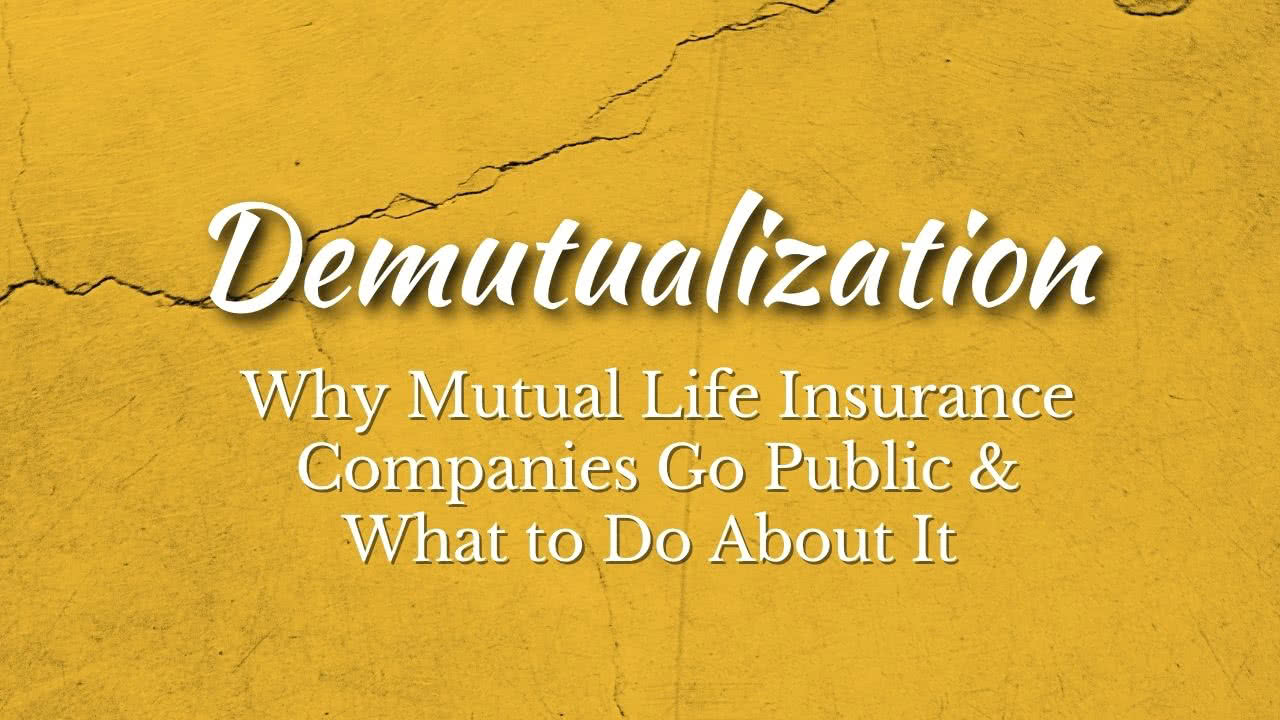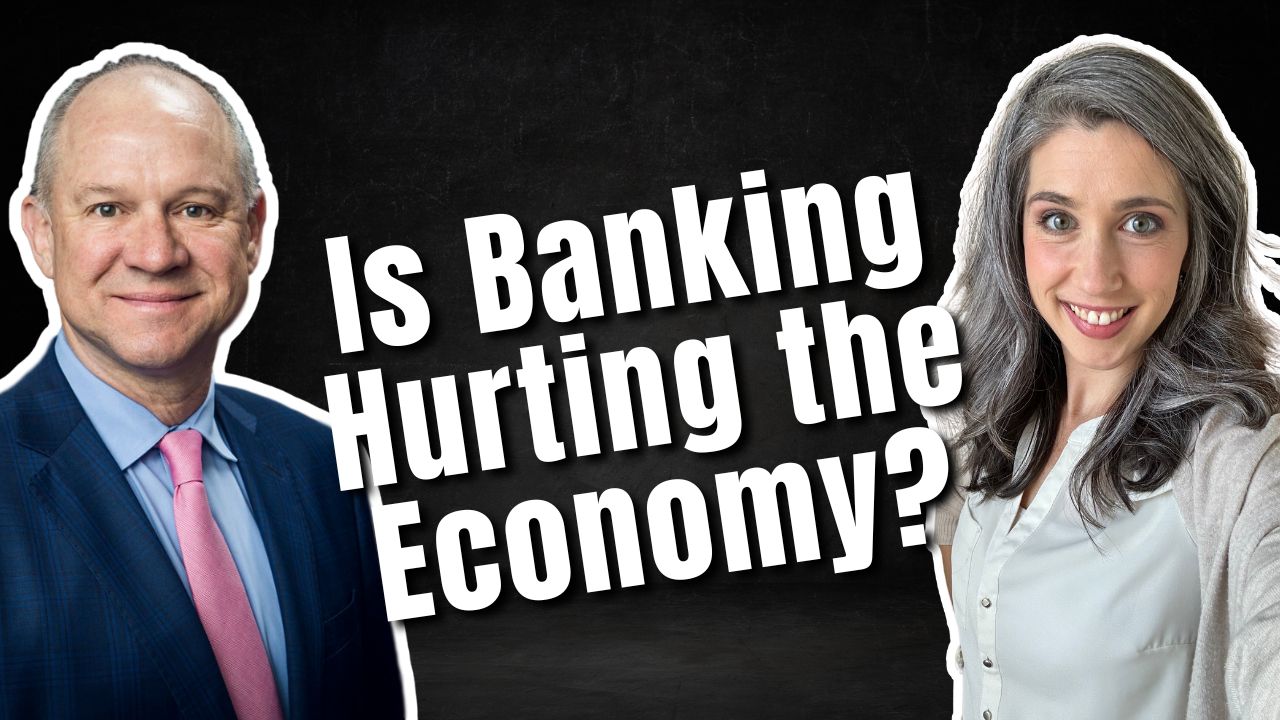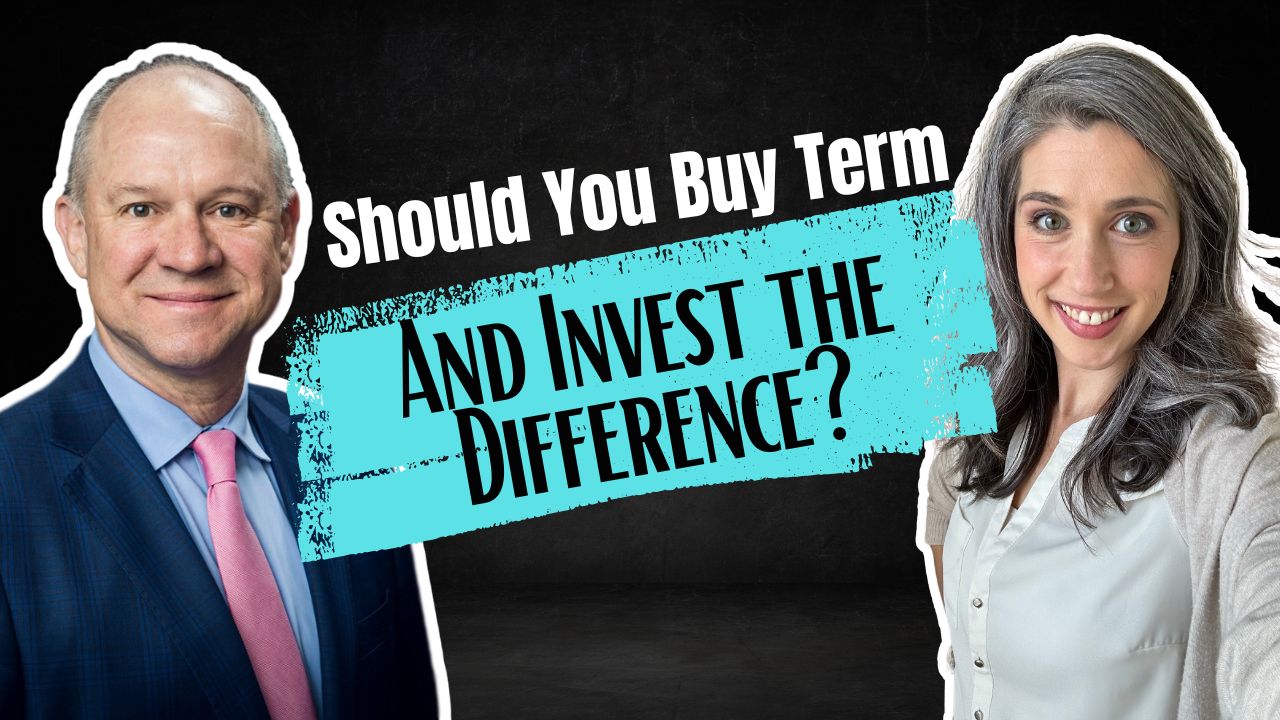
Life Insurance Demutualization: What it is and What it Means for You
For Infinite Banking, the ideal policy is a specially designed, high cash value, dividend-paying, whole life insurance policy with a mutual company. But some mutual companies, including Ohio National, have recently demutualized. So what is whole life insurance demutualization, and what does it mean?
Today, we’re going to talk about demutualizing and how it affects Infinite Banking policies.
You’ll learn:
- How a mutual company works
- Why you want a mutual company for Infinite Banking
- Why life insurance companies demutualize
- What to do if your life insurance company demutualizes
Hopefully, we’ll cover the question on your mind. So, if you’d love to see what the future holds for Infinite Banking, join us for the conversation!
Podcast: Play in new window | Download (Duration: 52:50 — 60.5MB)
Subscribe: Apple Podcasts | Spotify | Android | Pandora | RSS | More
Table of contents
Ohio National Demutualization
On March 23rd, a very prominent insurance company, Ohio National, announced their demutualization and planned merge with a Canadian company. In anticipation of the questions, we want to debunk and provide some clarity about what it means to demutualize, and how it should or shouldn’t affect you.
What is Infinite Banking or Privatized Banking?
Conceptualized by Nelson Nash, Infinite Banking is a strategy of accessing the cash value of an insurance policy for leverage. It wasn’t a new function, however his ideas were new. And so, he wrote a book called Becoming Your Own Banker.
By leveraging the cash value of an insurance policy, and borrowing against it rather than withdrawing from it, you can make your money do two jobs. A specially designed policy, for high cash value, with a mutual company, is the preferred method for privatized banking.
What is a Mutual Life Insurance Company?
A mutual insurance company is a company in which policy owners are partial owners of the insurance company, rather than stockholders. As a partial owner, you are entitled to a portion of the company’s profits in the form of dividends. This also means that mutual companies are not beholden to investors. This allows them to operate on a much more conservative basis for long-term performance.
A stock company, on the other hand, does not pay dividends to policy owners. Instead, investors pay dividends to stock owners, who may or may not have a policy. As a result, stock companies have to make short-term, risky decisions to appease stockholders and keep stocks up.
How Do You Choose the Best Company?
In the world of life insurance, it can seem like there is an overwhelming amount of options. Do you choose mutual companies or stock companies, direct recognition companies or non-direct recognition companies, etc. How do you determine which are the best life insurance companies?
First and foremost, we want to be clear that there are two main factors you should consider before anything else—the financial strength of the company, and the customer service. The former is important because you want a company that can meet its financial obligations.
Life insurance companies commit to paying every policyholder a death benefit. So are they making risky choices with their finances, or being more conservative? Mutual companies tend to think long-term and hold more reserves than stock companies. Even within mutual companies, it’s important to look at financial strength.
Then, you want to look at customer service. How do various companies treat their policyholders? What are people saying? Because of the nature of permanent insurance, you’ll be working with a life insurance company for life. It’s important to know how their service is.
How Does Whole Life Insurance Demutualization Work?
In the case of demutualization, a company is legally changing its structure from a private member-owned, dividend paying company to a publicly traded stock company. When this happens, a company has the option to offer stock to policyholders, although this doesn’t always happen. Otherwise, your cash value and death benefit remain intact. The only thing that really changes is that you stop receiving dividends.
As a policy owner with a company that has demutualized, you have a few decisions. First, you can keep your policy in place. Another option is to 1035 your cash value into a new policy elsewhere. Depending on your policy age and cash value, a 1035 exchange may not be your best option.
When Bruce had a policy demutualize in the 80s, he ran an analysis on his options. Ultimately, he chose to keep his policy in place, because it kept his higher death benefit in-tact. One of the best things you can do is determine what you want from your money. Then, assess if your policy will still meet those objectives.
The takeaway? Demutualization isn’t doomsday. In the end, you still have one of the most components of your insurance—the coverage itself.
What’s the Reason for Ohio National Demutualization?
When companies demutualize, like the Ohio National demutualization, it’s often for financial reasons. In a low interest rate environment, it is hard enough to meet obligations. If companies don’t act quickly enough, companies are faced with some tough decisions. Becoming a stock company allows the company to make quick, short-term decisions and hopefully improve their long-term performance.
Ultimately, when a company demutualizes, they’re trying to act in the best interest of their policy owners. This is because they’re seeking to continue meeting the needs of their policy owners. If your company has demutualized, we encourage you to seek someone who can help find the right next step. Finding yourself with a stock company doesn’t have to be a reason for panic.
Book A Strategy Call
Do you want to coordinate your finances so that everything works together to improve your life today, accelerate time and money freedom, and leave the greatest legacy? We can help!
Book an Introductory Call with our team today https://themoneyadvantage.com/calendar/, and find out how Privatized Banking, alternative investments, or cash flow strategies can help you accomplish your goals better and faster.
That being said, if you want to find out more about how Privatized Banking gives you the most safety, liquidity, and growth… plus boosts your investment returns, and guarantees a legacy, go to https://privatizedbankingsecrets.com/freeguide to learn more.
Fractional Reserve Banking Creates Inflation: Infinite Banking is the Solution
Inflation causes everything to feel more expensive, so what do you do to protect your money from inflation? Today, we’ll explore the link between inflation and fractional reserve banking, and how Infinite Banking is the sound money solution. A thought-provoking journey through inflation, fractional reserve banking, and the revolutionary concept of infinite banking. This episode…
Read MoreBuy Term and Invest the Difference: Here’s What’s Wrong
Are you trying to decide which type of life insurance to buy? You want to protect your family in case something happens, so how do you do it best? Whole life insurance is often rejected as expensive and a poor “investment,” while mainstream opinion leans in favor of the “buy term and invest the difference”…
Read More


